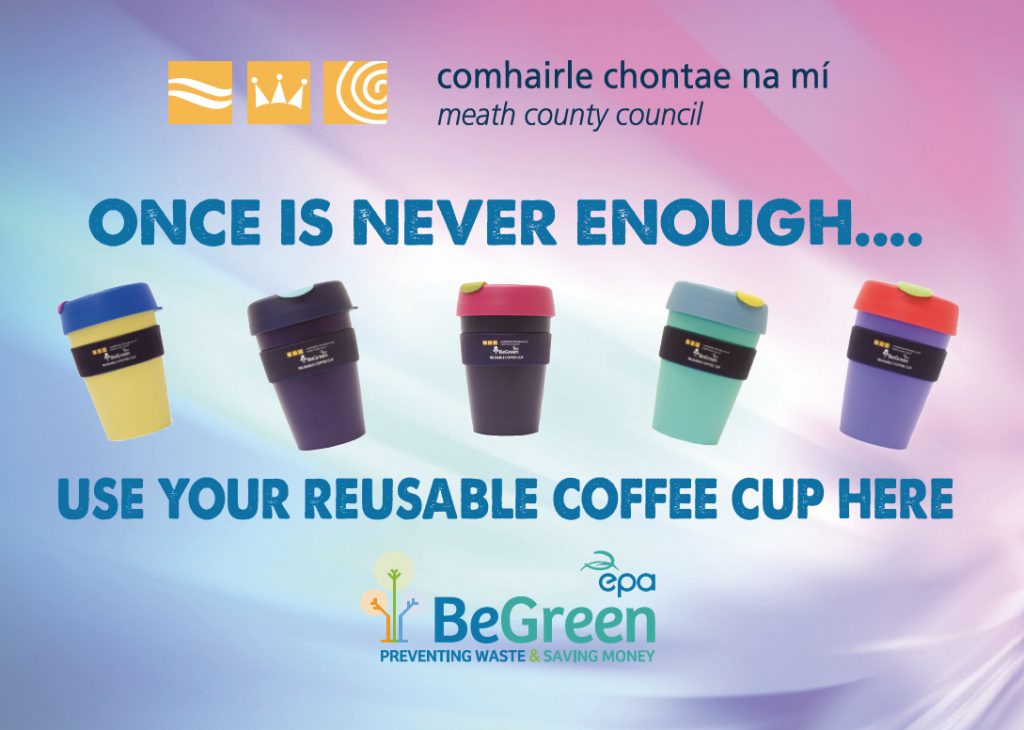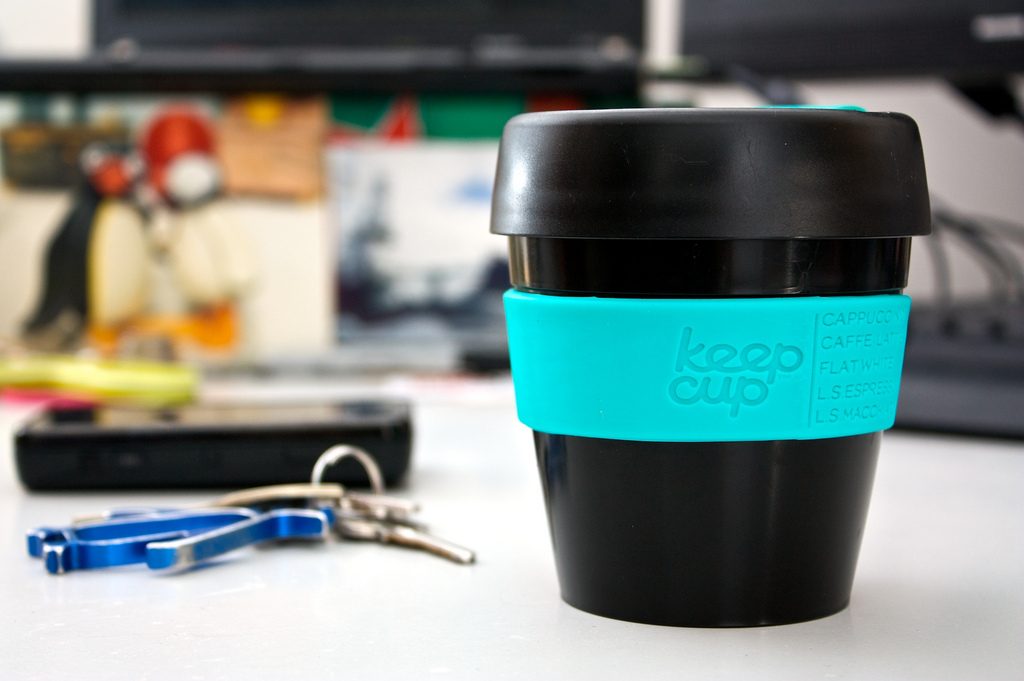Cork City Council to stop using disposable coffee cups from next week

January 11th, 2017
Cork City Council is set to bring in a ban on the use of disposable single-use coffee cups in their offices.
Starting next week, disposable single-use beverage cups will no longer be available at the Council, with free reusable cups distributed to staff at Cork City Hall yesterday.
If a staff member forgets their keep cup, they will have to pay an extra 20 cent to use one of the ceramic cups also available in the Council’s canteen.
From next week, disposable single-use cups will no longer be available at Cork City Council. Staff being encouraged to use these environmentally friendly reusable cups instead #coffeecupban #Reuse #Recycle pic.twitter.com/CqGMG7vV0b
— Cork City Council (@corkcitycouncil) January 10, 2018
The move follows a decision by Meath County Council in 2015 to replace disposable cups used by staff with reusable versions. Staff were issued with one reusable cup and must pay for a replacement if they lose it.
According to the Council’s environmental officer, Bernadine Carry, the Reuse or Refrain policy has been a great success and helps keeps 60,000 disposable cups per year out of the waste stream.
Ms Carry told The Green News that despite expecting some teething problems with the scheme, staff have been “more than happy” to stick with their reusable cup.
“In 2016, we did a second campaign on the back of the success of the in-house campaign and distributed 1,250 reusable cups to the public though coffee shops, garage forecourts, and competitions,” she added.

Council campaign to encourage the public to use reusable cups Photo: Meath County Council
Latte Levy
Many potential solutions have been brought in by coffee chains in recent years such as disposable compostable cups, however, most require commercial composting to biodegrade and end up in landfill.
Last November, the Minister for the Environment, Denis Naughten, TD, said that the Government was looking at bringing in a 15 cent levy on disposable coffee cups in a bid to reduce the 2 million-odd disposable coffee cups that end up in landfill every year.
This figure is “scandalous” according to Cork City Council’s Chief Scientist, Mary Walsh, who added that the ban is the Council’s way of playing a part to “reduce our environmental footprint”.
“Cork City Council was spending €700 a month on disposable cups at its canteen and we have spent €3,500 buying 500 reusable cups for staff at City Hall,” she added.
“So we’ll see payback on that reusable cup investment in just five months. It’s a win-win for Cork City Council.”
Your Cup Our Future
In November, Coffeeangel launched a new initiative to donate 20 cent from every cup of coffee served in a reusable KeepCup to Friends of the Earth Ireland to support local environmental initiatives.
Speaking at the time, Director of the specialty coffee chain, Caroline Sleiman, said that the move will also help the environment by reducing the number of single-use cups entering landfill.
“Whilst the challenges and changes required are immense, we wholeheartedly believe that through the power of small, personal initiatives we can help make a difference,” she added.
Waste Reduction Bill
The Green Party’s Waste Reduction Bill is set to come before the Oireachtas Environment Committee for pre-legislative scrutiny in the coming weeks.
Launched in June 2017, the Bill outlines plans for an outright ban on single-use non-recyclable plastics such as coffee cups and plastic cutlery by 2020.

Keep Cup Photo: penguincakes
The Bill, which the Government voted against last year, also seeks to introduce a deposit refund scheme on drinks containers and a deposit-return scheme for plastic bottles.
Green Party Senator Grace O’Sullivan called on the Government to rethink its position on the Bill and face up to the “massive challenge” of tackling plastic pollution.
“According to the UN, eight million tonnes of plastic leak into oceans each year,” the Waterford Senator added. “This is equivalent to dumping a truck of plastic into the sea every minute.”
The issue is set to be further complication by the recent decision to ban the importation of solid waste including plastic by China, where the vast majority of Ireland’s plastic waste currently ends up.
[x_author title=”About the Author”]







